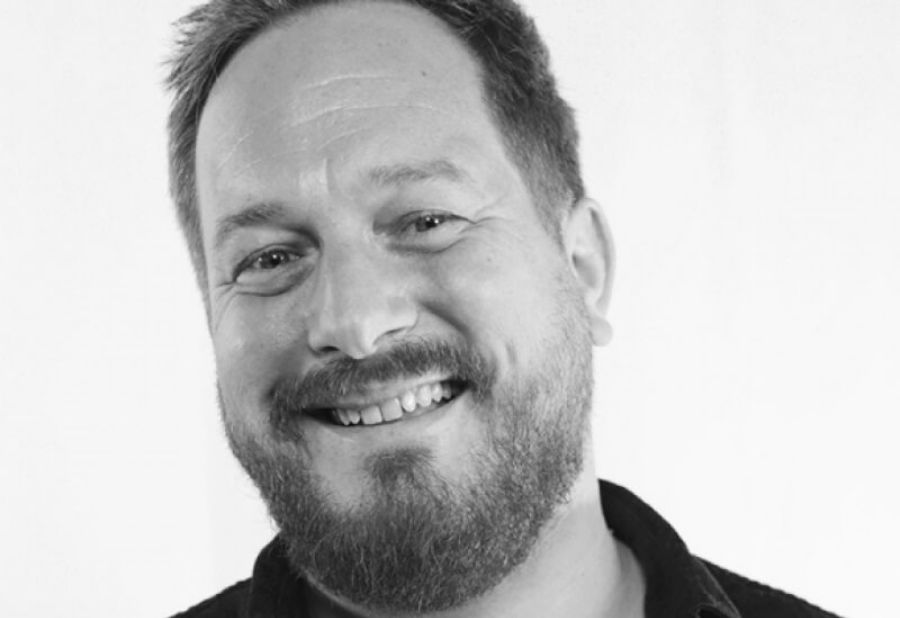Jake Shuckburgh, director of people at Strata Creative Communications, tells us how the company’s strategy is all about employee wellness and happiness.
The past two years have really taught us, and indeed a lot of other industries, that people are our most important asset,” says Jake Shuckburgh, director of people at Strata Creative Communications.
Therefore, it’s imperative that their wellbeing is supported by their business. Here’s where Shuckburgh comes in. His role at Strata is director of people, but what does that actually mean?
Essentially, his role is similar to HR, but with a more refined focus. “HR can be very transactional. I think the term ‘human resource’ sounds like you’re a commodity, and we’re not. HR has become about contracts and legal stuff,” he says. “That’s why at Strata, we think ‘people’ is a better term, because it’s about being human and interacting with others, as well as supporting and developing our employees. There is nothing else in our business that makes it successful, other than our people, so they are a very important part,” explains Shuckburgh.
“Overall, there’s been a big shift from the traditional HR function, into a much more rounded people approach over the past couple of years, which is very exciting,” he adds.
Checking in
Our people are particularly important, as we often work for long and unsociable hours as eventprofs. “People are much more aware of mental health, the effects that working long hours and having a stressful job can have on an individual,” says Shuckburgh. “We are beginning to challenge the complacency in the past few years of encouraging people to ‘just get on with it,” he says.
While it is sometimes required for our people to work longer hours, as an industry, we need to check in and ensure our people are okay. How best can we do this?, I ask Shuckburgh. “We can do this by managing their workloads, giving them clear visibility on their career direction, and supporting them in a more consistent way. It’s important for our people to maintain a work-life balance, as this knocks on to their wellness and mental health too,” says Shuckburgh.
After all, the way we treat and look after our people, ultimately filters down to the events we run and how we organise them. Remember, happy and healthy people will result in successful, smooth-running events.
Culture: in and out of the office
Another way of looking after and supporting employee wellbeing is considering the culture that surrounds them in the workplace, reveals Shuckburgh. “Culture is very important,” he says. “I think the definition of culture has changed. It’s not about physical things like beanbags or football tables any more, it’s much broader. It’s about how businesses look at important issues, such as equality, diversity, and inclusion, even sustainability, and the way they approach these topical issues. This, ultimately, creates the culture in which employees are happier to stay in,” he says.
This culture even extends to outside of the office, and to employees who are working from home. Yes, flexible working has become the norm and has many benefits, but we must remember it can also negatively impact our wellbeing if we’re not careful. “I think working in the pandemic is a very difficult time for some, and people find it can affect their mental health being remote and on their own,” says Shuckburgh.
But we must remember, our employees should never feel alone, or ‘in isolation’, it’s all about communication, more specifically, always ensuring there’s some form going on. At Strata, Shuckburgh reveals the company has implemented various initiatives such as coffee mornings to “help people get in touch with others they don’t necessarily speak to on a daily basis, and to try and keep the feeling of a team and camaraderie going.”
Strata has also set up a mental health helpline for its employees, which is supplied through the company’s Bupa health care package. “We also train our employees in mental first aiding, we have a lot of mental health first aiders now” Shuckburgh adds.
He reminds us: “All it’s really about is just keeping more regular contact with people whilst they work from home, and encouraging them to be open, as well as providing someone like myself to support them on a daily basis.”
Behavioural shifts and changing mindsets
What does it take from a management perspective, to implement these changes and ensure wellbeing is put first? I ask Shuckburgh.
“It takes a behavioural shift,” he says. “From a management perspective, it’s about investing time, more than anything, with those employees. Give them the opportunity to tell you where they want to be in three years or five years,” says Shuckburgh.
“Ask them what their career aspiration is, and help them achieve that, because your people will ultimately help you as a business to continue to develop.”















